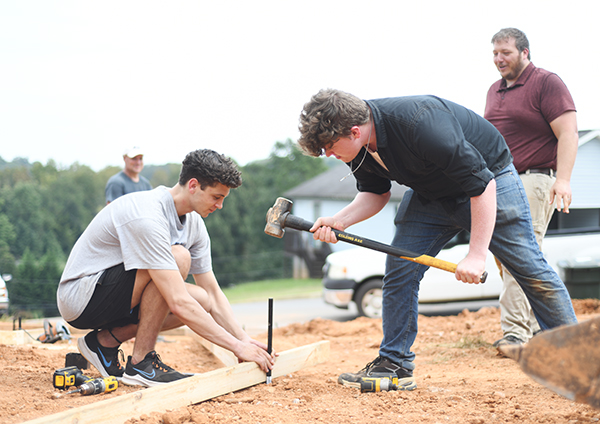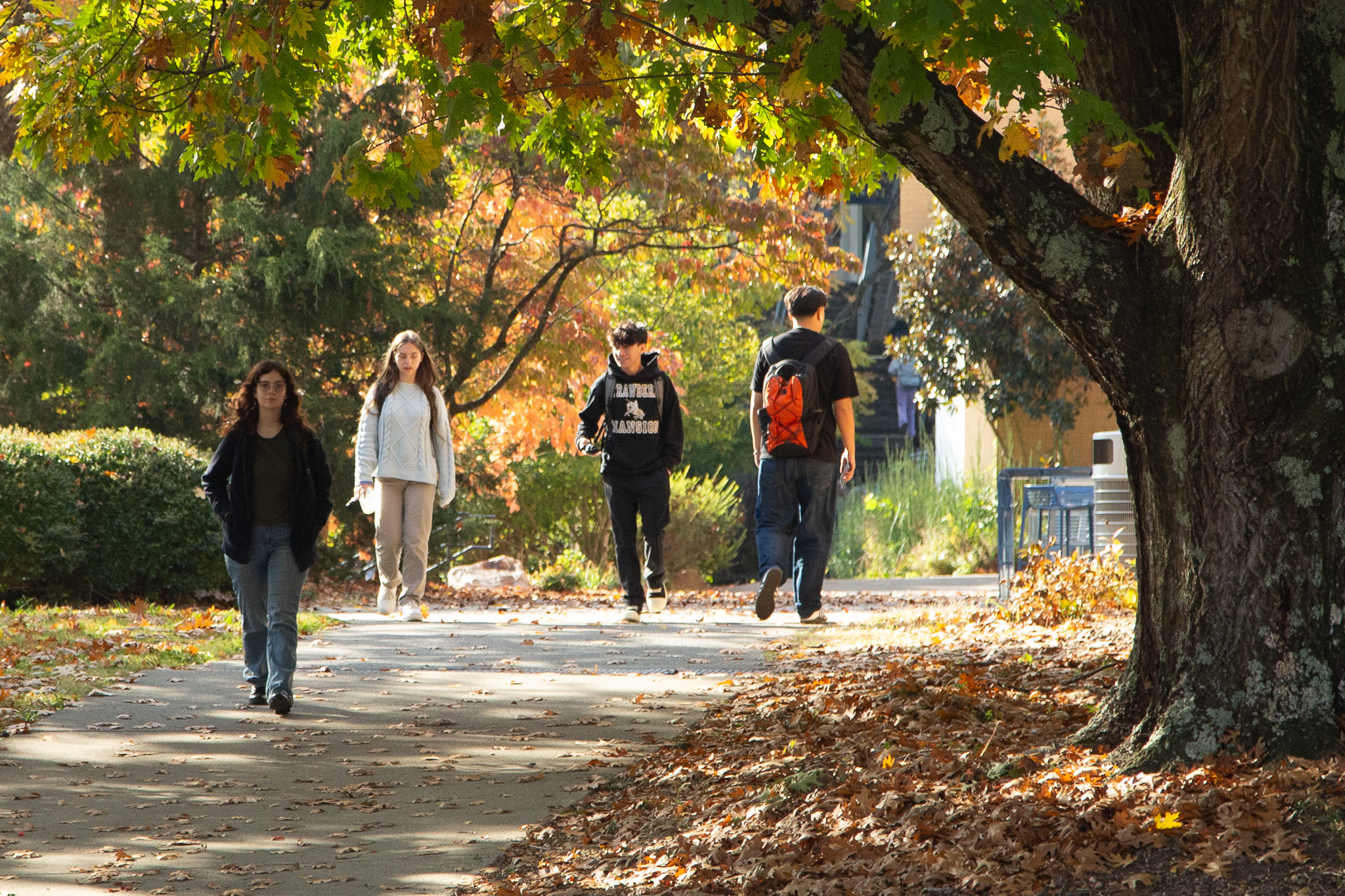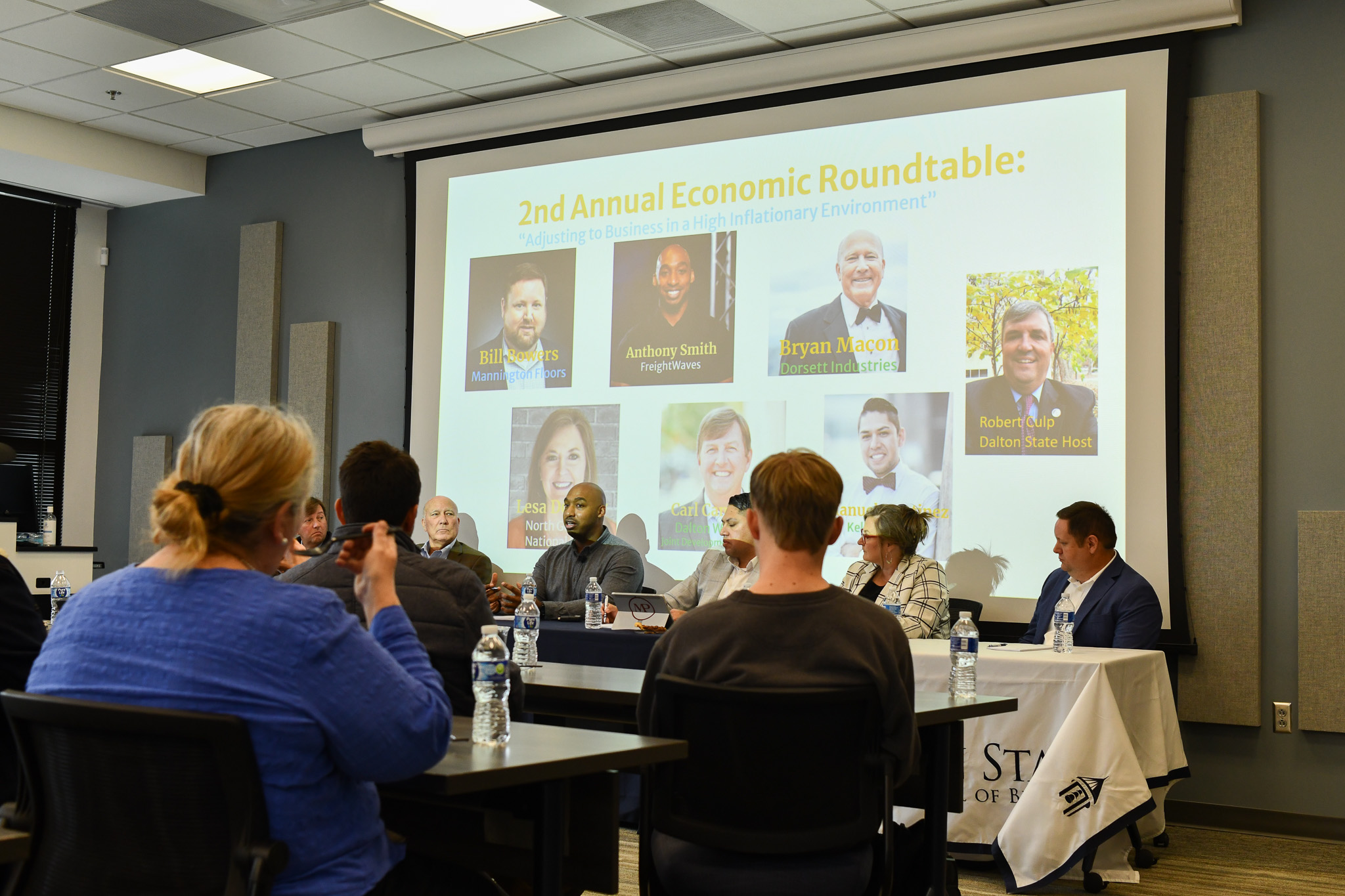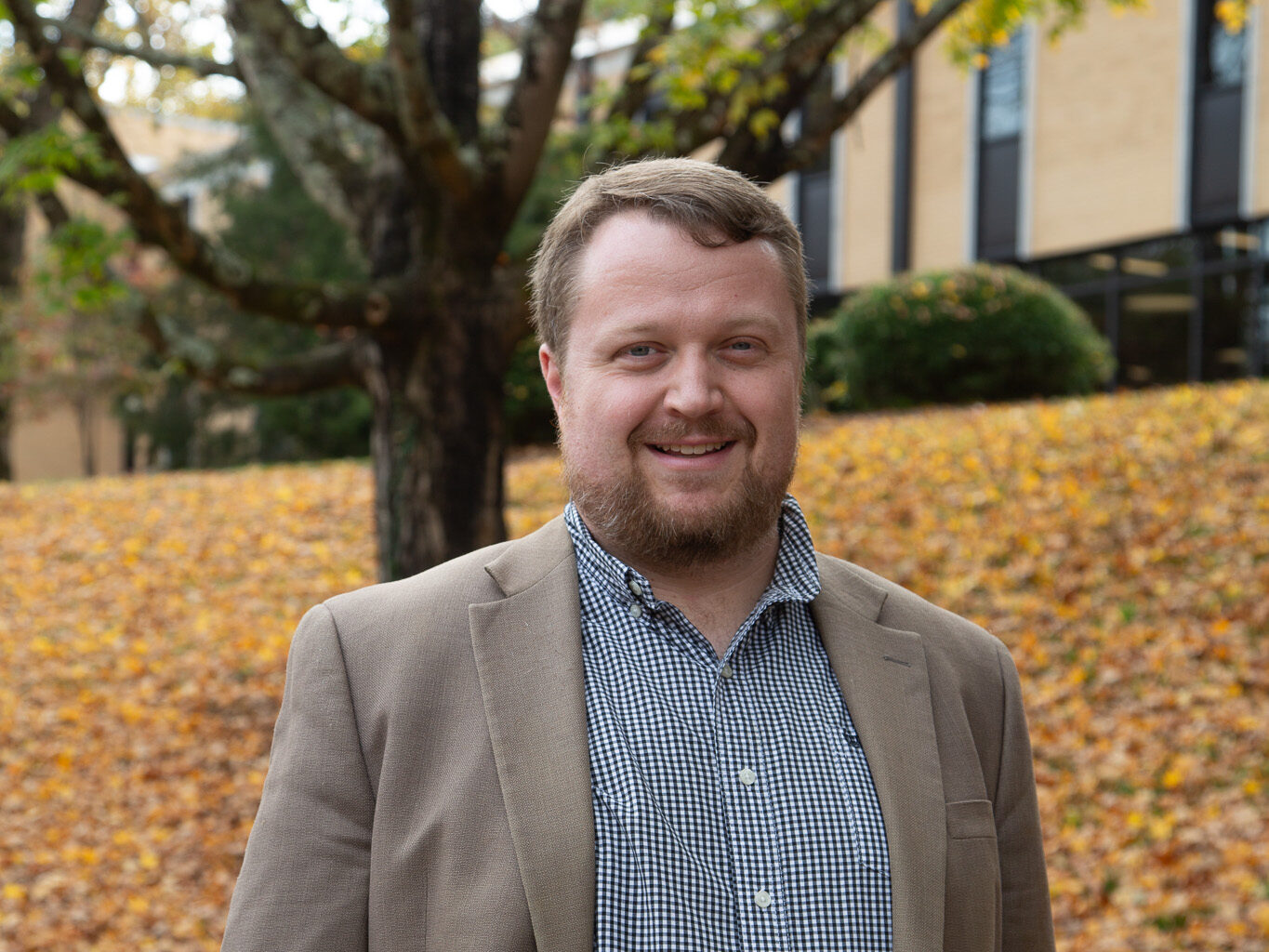Kristy Strawbridge spent her fall semester at Dalton State learning to be comfortable being uncomfortable.
Strawbridge, of Chattanooga, is a first-year social work major in a service-learning course. Students in the course have spent the semester volunteering at several local nonprofits, including Habitat for Humanity, City of Refuge and the Dalton Housing Authority.
“This class is building my confidence,” Strawbridge said. “I want to be comfortable feeling uncomfortable. This class gives you the support you need to go out into a real-life setting to gain experience outside the classroom instead of being guarded inside a building. We have to learn to build rapport and relationships with people in the community where we’ll be working, and this class is giving us that. It has been a really good experience.”
Service learning experiences are an important part of the educational experience, especially for social work students who will work in and with nonprofit organizations in their field after graduation. Working hands-on in the community bridges what students learn in the classroom to real-life situations and life after graduation.
“Service is an integral part of the social work education for a variety of reasons,” said Tammy Rice, Bachelor of Social Work program director and assistant professor of social work. “Service is a part of the professional code of ethics for social workers, and social workers are expected to give back to the community and society as a whole – beyond what they do within the confines of their work. So, we have integrated this into the curriculum to engage students and establish them on this lifelong aspect of the profession.”
Students are required to complete 50 volunteer hours during the service-learning course. Because of the pandemic, 40 are done with the class and 10 are completed on their own. Without the challenges of the pandemic, students are required to complete 25 as a class and 25 on their own. Social work students are also required to complete 20 hours each academic year during the social work program.
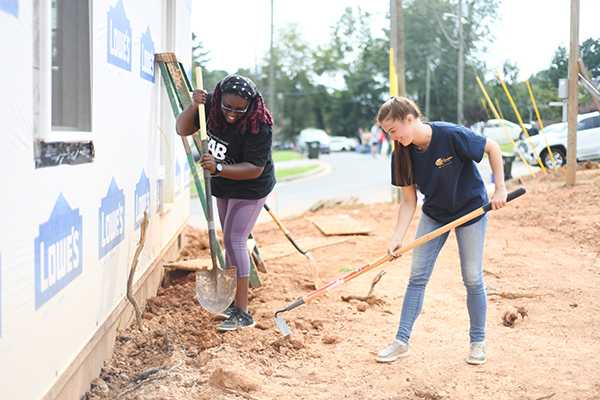
Prisma Amador, a junior social work major from Chatsworth, took the course last fall when the pandemic presented even more challenges. Most of Amador’s hours were spent with the Housing Authority in Dalton.
“Each Wednesday we spent four hours volunteering,” she said. “But each week we experienced something different. It was insightful to see what circumstances people are in and understand how much need there is in our own community.”
The class offered a cleaning supply drive but had run out of supplies within 30 minutes with people still in line.
“It was so eye-opening to see how much need there is for basic things like cleaning supplies,” Amador said. “We felt so awful because we had to tell people we had run out of supplies. Another time we hosted a Halloween party for the children who lived in the housing authority. The look on the kids’ faces was amazing. You see it – just for a second – these kids forget all their problems, and they were just kids. I feel like we can forget or be ignorant in our own world that there is so much poverty in our community. There are people who are homeless or just need help with some basic supplies or need affordable housing.”
When Steven Cooper, assistant professor of social work who teaches the service learning course, graduated from Dalton State College in 2016, this course was not offered. Students completed service hours individually. Cooper completed more than 200 hours at the Northwest Georgia Family Crisis Center.
“I had so many significant interactions with the individuals and families served by this agency,” Cooper said. “A large majority of my time was spent aiding with a two-week summer camp. Many of those children had never been to a movie theater, a jump park, a baseball game or many other activities most children experience. We treated children to fun activities most people take for granted. This showed me the importance of having an open mind and an open heart. These children spoke about housing instability, food insecurity and various traumatizing events, yet they often wore a smile and showed incredible resilience. My primary takeaway was: generously share kindness, respect and dignity to all we encounter because we have no idea the courage it took for them to make it this far.”
Cooper now teaches the same philosophy to students at Dalton State and leads them while working by their side at volunteer sites.
“Because of Mr. Cooper’s experience, we are learning a lot, networking and meeting people in our community,” Strawbridge said. “It’s good to have these experiences. What I’ve learned most this semester is how many resources the housing authority provides in addition to housing. We got to witness, and be part of, organizations coming together to help others.”
Strawbridge worked fulltime as a behavioral health technician prior to enrolling in college.
“I thought experience was more important,” she said. “I did that for a long time and did really well, but I realized there were also some limitations, and you need the education and credentials. I like the curriculum Dalton State provides for social work and am thankful for the opportunity to take classes like the service-learning course.”
There have been extra challenges gaining service hours due to the pandemic, but Rice says that experience will also be beneficial to social work students as they begin their careers.
“Our students have experienced firsthand by learning in a pandemic how they will one day practice in a pandemic, and practice as social workers addressing the aftermath of a pandemic,” she said. “Their social work learning, and their entire future career have been impacted by COVID, and that reality meant we didn’t treat the COVID restrictions as something that would limit their educational opportunities, rather as something that expanded them.”


